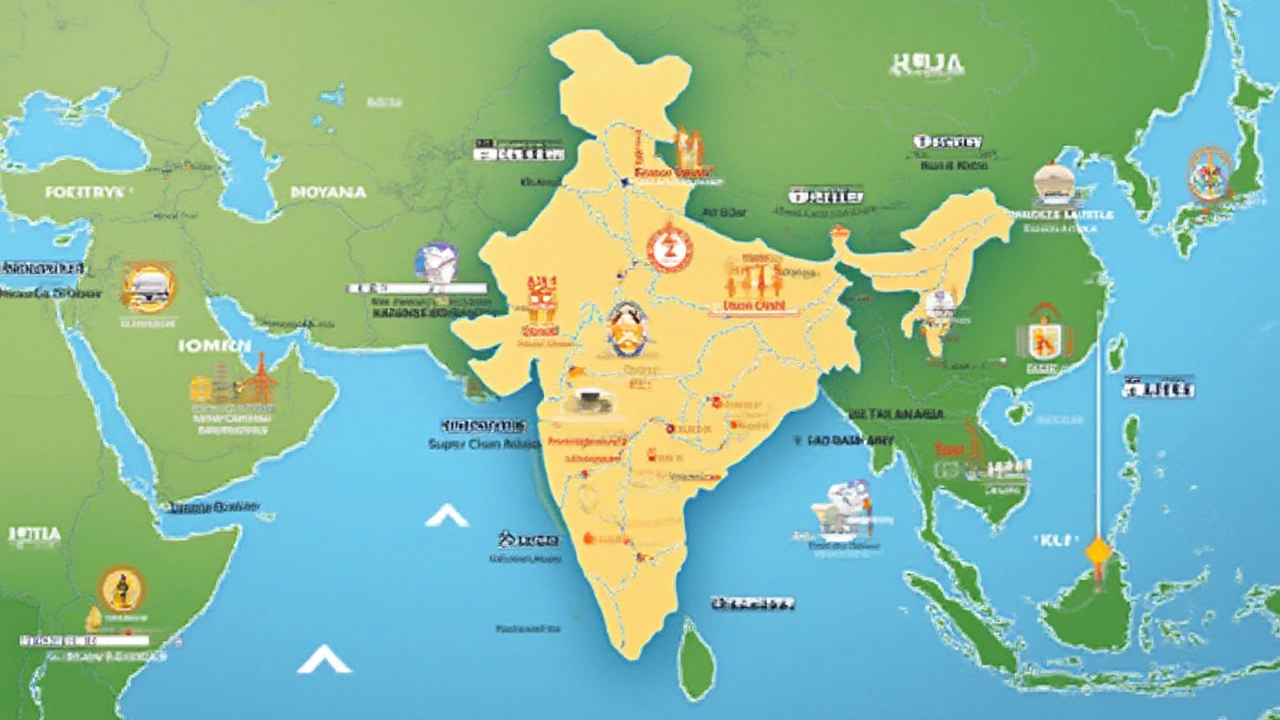Picture this: You’re chatting with friends at the pub, and the conversation turns to jobs. Someone says, “Logistics? Isn’t that just shifting boxes?” But behind every speedy Amazon order, every fresh avocado at Tesco, and every smooth airport operation, there’s a whole world of logistics jobs—and some pay eye-watering amounts. We’re not talking about entry-level salaries here. There are logistics professionals raking in six-figure incomes, driving Ferraris, and holidaying in the Maldives. What’s their secret? Let’s pull back the curtain on just how high salaries go in logistics and what it really takes to get there.
Where Are the Biggest Paychecks in Logistics?
High salaries in logistics aren’t handed out like free biscuits. It takes serious responsibility, sharp skills, and usually a global perspective. First, let’s break down where the top pound signs live. Executive roles steal the show: titles like Chief Supply Chain Officer (CSCO), Global Logistics Director, or Head of International Operations. In massive companies (think Maersk, DHL, or Amazon), CSCOs easily make upwards of £200,000 a year—sometimes pushing beyond £400,000 with bonuses and shares. In 2024, a study by Supply Chain Digital put the average global CSCO salary at around £263,000. But that’s just the average. A director in the UK at a blue-chip firm can command between £150,000 and £350,000, plus a bonus of 30-100% of their base pay and sometimes stock options thrown in. The real action starts when logistics goes global: the more international your remit, the higher the stakes and, usually, the higher the cheque.
But you don’t have to be in the C-suite to make bank. Regional Heads of Logistics in major metropolitan hubs like London, Manchester, Hong Kong, or New York are seeing base salaries from £120,000 up to £250,000 before bonuses. Specialties drive up the numbers too. Air freight operations managers, especially in cargo-heavy airports, report top-end salaries around £140,000—those handling hazardous materials or high-value goods notch even higher. Tech is changing the game fast, too: logistics professionals who can implement AI, manage big data, or drive digital transformation nab extra zeros on their payslips. For example, Digital Supply Chain Transformation Directors in UK multinationals reported salaries ranging from £160,000 to £280,000 in 2024. And if you’re one of those rare specialists who can juggle customs, international tariffs, and manage Brexit headaches, your value goes sky-high in both consultancies and private companies.
Let’s not forget the bonuses. At the top, bonuses shape a major chunk of total pay—sometimes doubling annual income. Equity, profit share, company cars, and even club memberships are all part of the mix for top logistics heads. By the way, sector also matters. Pharmaceuticals, tech, and e-commerce logistics consistently pay more. For instance, a Head of Supply Chain at a Big Pharma firm can pocket up to £350,000, while luxury retailers often tie bonuses to how efficiently you keep Chanel bags landing in shops. Quite a change from the ‘just boxes’ stereotype, right?

How Do You Land the Top Logistics Salary?
Earning big in logistics isn’t luck. Those in the top bracket share skills and habits that push them ahead of the crowd. So what does it really take? For one, strong education helps—many high-flyers hold degrees in supply chain management, engineering, or even MBA or MSc qualifications from top schools (think Cranfield, Warwick, or INSEAD). But book smarts aren’t enough. The key trait? A knack for spotting efficiency gaps before they become shipping nightmares. Leadership and crisis management are vital. Remember the Suez Canal blockage in 2021? Heads of logistics who could reroute goods, negotiate with panicking suppliers, and calm frantic retailers suddenly looked like wizards.
Big earners tend to have international experience—working in multiple countries or managing global teams. Knowing how to juggle a customs nightmare in China at 2am and then jump on a call to New York by breakfast is a sought-after skill. Another trick? Tech-savvy. The logistics world is obsessed with automation, AI, and digital supply chains. Get fluent in SAP, Oracle, or even custom logistics software, and suddenly your value goes up. The best-paid professionals are the ones who always adapt—they upskill constantly, embrace tech, and bring ideas that save time, money, or errors.
Networking plays a bigger part than most realise. The fastest way to the top isn’t through online job ads—it’s through referrals, old colleagues, and connections at trade shows. Headhunters regularly chase high performers, especially those who deliver under pressure. A top logistics executive I spoke to in 2025 landed his current job after bumping into his future CEO at a Luton airport lounge. So yes, polish your LinkedIn and show up at those industry events. Fluent languages open doors too: being able to negotiate in Mandarin, Spanish, or German is a rocket to the top because it breaks down communication barriers with suppliers and customers worldwide.
For those at mid-level, ambition pays. Volunteer for tough projects, offer to manage tricky accounts or suggest cost-saving ideas in your next meeting. Keep a portfolio of your wins—successful projects, cost reductions, disaster management, or team improvements. When a recruiter calls, numbers talk louder than buzzwords. And don’t pigeonhole yourself—logistics is more than just lorries and containers. Branch into e-commerce, pharmaceuticals, or even sustainability roles in supply chains. Companies are desperate for eco-friendly and emissions-savvy strategists as green rules tighten. You can also supercharge your path by consulting for a few years. Consultants who turn around disaster supply chains or deliver tricky systems upgrades often jump straight into executive gigs—including those giant pay packets.

Unusual Paths to Big Logistics Salaries
It’s easy to assume only MBAs or spreadsheet geniuses can bag the biggest logistics pay. Not true. There’s no such thing as a single road to the top. Sometimes the highest-paid logistics leaders started on the floor—literally. Warehouse managers who led automation projects or lorry drivers who built their own haulage empire can out-earn plenty of suit-and-tie execs. In the UK, one warehouse manager in the Midlands used robot tech to streamline operations and got promoted to logistics director in under six years—his base salary soared past £130,000 by 2024, with annual bonuses adding tens of thousands more. These career leaps happen when people drive real, measurable results, not just tick boxes.
Entrepreneurship is another goldmine. Plenty of logistics millionaires own courier companies, last mile delivery services, or even bespoke shipping consultancies. The rise of Amazon and eBay sellers means demand for innovative delivery and fulfilment partners is exploding. Firm owners in this space sometimes cash out for seven-figure sums when a big fish like FedEx or DPD comes sniffing. And don't forget consultants: logistics consultants working on international expansion, customs regulation, or crisis management charge anywhere from £1,000 to £3,000+ per day at the top end, especially if they have government or crisis experience. If you can solve complex global puzzles, big brands and governments will throw money your way.
If you want to speed up your climb, look for ‘invisible’ roles. Companies badly need experts in supply chain cyber-security, reverse logistics (managing product returns), or compliance—especially if you’ve survived the headaches of Brexit or EU regulation changes! These aren’t always glamorous, but the pay checks are top-shelf because so few people want or understand them. Even within large food chains or car makers, there are small teams solving the most complex shipping, legal, and sustainability headaches. They offer remote work, big bonuses, and job security most envy. So, keep your eyes peeled for less obvious roles with fewer rivals.
If you’re thinking about logistics as a career, don't settle for the first job offer or the first promotion. Get to know the industries that pay best—tech, pharma, luxury retail, and ecommerce consistently top the tables. Don’t be afraid to invest in yourself: certifications like CILT (Chartered Institute of Logistics and Transport), APICS, or Six Sigma can open doors and nab the attention of international headhunters. Finally, remember: logistics is always evolving. What pays best today can be transformed tomorrow by a new technology, a political crisis, or fresh global trends. Stay curious, build a rock-solid network, and don’t let anyone tell you logistics is a ‘background’ career. That’s just the side everyone sees—until they look at the bank balance.





